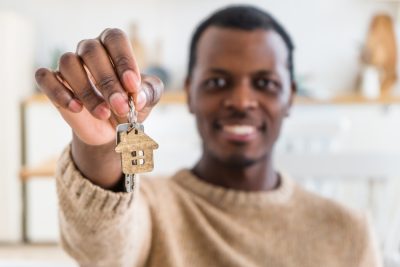Navigating the real estate market as a Black homeowner involves understanding unique challenges, preparing for systemic inequalitie and making informed decisions to secure a better future. Buying a home has long been seen as a cornerstone of the American dream, but for Black homeowners, this journey often comes with additional obstacles. From historical redlining practices to disparities in mortgage rates, the path to homeownership requires resilience, knowledge and a proactive approach.
For Black individuals and families, homeownership is not just about acquiring property; it’s about generational wealth, stability and community empowerment. This article will help you explore the key steps you need to take to navigate the real estate market with confidence, arm you with critical knowledge, and empower you to make decisions that best support your family and financial goals.
A look at historical challenges and how they shape the present
As a Black homeowner, understanding the historical context is essential. For decades, Black Americans were excluded from homeownership through discriminatory practices like redlining — where certain neighborhoods were deemed “high risk” simply because they were predominantly Black. Although redlining was outlawed, its legacy still affects real estate values and access to fair financing today.
Modern issues persist — such as being offered less favorable mortgage terms or lower property appraisals. Knowing the history can prepare you for the challenges ahead and remind you that owning a home is both a personal and collective victory.
Although challenges remain, knowledge is your most valuable tool when navigating the real estate market. Understanding your rights as a Black homeowner and potential red flags can make all the difference in how smoothly your journey goes.
Preparing financially for homeownership
One of the first and most crucial steps for any homeowner — particularly for Black homeowners — is financial preparation. Securing a mortgage, building savings and ensuring your credit score is strong are fundamental steps. Research shows that Black Americans are often offered higher interest rates on loans, making it critical to compare lenders, negotiate terms and ensure you receive the best deal possible.
Before stepping into the market, make sure your credit score is in good standing. While mortgage lenders have become more lenient in some aspects, your credit score will largely determine the loan amount and interest rates you’re eligible for. Start by checking your credit report for any inaccuracies that could affect your eligibility, and consider taking proactive steps to improve your score if necessary.
For many Black families, the idea of securing a home is tied to the emotional weight of overcoming financial inequalities. A strong credit score isn’t just a number; it represents a path to empowerment and independence.
Finding a culturally competent real estate agent
Another important consideration is selecting a real estate agent who understands the unique challenges that Black homeowners face. While the racial makeup of your real estate agent doesn’t determine their competency, working with someone who has a deep understanding of these issues can make your experience smoother. Look for agents who have a proven track record of helping Black homeowners and are committed to fighting against housing discrimination.
Your agent should be your advocate in the process, especially when navigating neighborhoods that have historically undervalued Black homeowners. They should also be knowledgeable about the specific neighborhoods you are interested in, particularly in areas where Black homeowners thrive or are gaining a foothold.
Researching Black homeowner-friendly neighborhoods
Choosing the right neighborhood is as vital as choosing the right home. Some areas have historically been more welcoming and offer better opportunities for Black homeowners to thrive. When researching where to buy, consider looking for communities that support Black homeownership, have strong Black businesses and invest in the long-term success of their residents.
Some neighborhoods may be more attractive because they offer access to better schools, hospitals or employment opportunities. It’s important to balance affordability with these aspects, but don’t discount the value of being in a supportive community.
Advocating for fair appraisals and inspections
Unfortunately, Black homeowners have often faced bias in home appraisals. Studies have shown that homes owned by Black families are appraised at a lower value compared to similar homes in predominantly white neighborhoods. Advocating for a fair and objective appraisal is an essential part of ensuring that you don’t lose money simply because of your race.
To safeguard against this, don’t hesitate to get a second opinion if you suspect racial bias in your home appraisal. Additionally, having a detailed record of the improvements or upgrades you’ve made to the home can provide tangible proof of its value — reducing the likelihood of a biased low appraisal.
Protecting your investment
Once you’ve purchased your home, the work doesn’t stop. Protecting your investment is about more than just maintenance; it involves being aware of policies, taxes and any changes in neighborhood dynamics that could impact your property’s value. The pandemic, for example, shifted how many viewed the importance of homeownership, and for Black homeowners, there was an increased push toward securing homes as a means of financial stability.
One of the best ways to protect your investment is by staying informed about changes in the local real estate market and property taxes. Additionally, investing in home improvement projects that enhance curb appeal or energy efficiency can help to increase your home’s value over time.
Empowering Black homeownership through community involvement
Empowering yourself and other Black homeowners doesn’t end with the individual. It’s also about being active in your community and creating an ecosystem of support. Participating in or supporting Black homeownership initiatives, financial literacy programs or even starting conversations within your community about housing discrimination can make a big difference.
Every home purchase contributes to the greater story of Black homeownership. Supporting one another by sharing knowledge and resources can empower the next generation to navigate the real estate market with more confidence and less adversity.
A path to legacy and wealth
Navigating the real estate market as a Black homeowner comes with its unique set of challenges, but it’s also filled with opportunities for empowerment, financial growth and legacy building. By being aware of the systemic obstacles and actively seeking solutions, Black homeowners can forge a successful path to not only owning a home but also contributing to the larger narrative of economic equality.
Every decision you make in the homeownership journey — from selecting a neighborhood to advocating for fair appraisal values — creates a ripple effect. As more Black homeowners successfully navigate the market, it strengthens the foundation of generational wealth and community upliftment. Homeownership is more than just bricks and mortar; it’s a key to a more prosperous future for Black families everywhere.
This story was created using AI technology.







